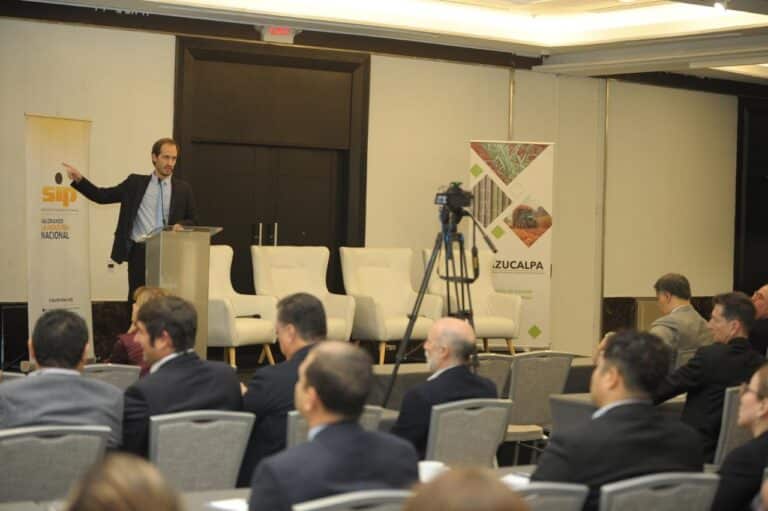The six-chapter series, to be launched simultaneously in the countries of Central America, deals with topics such as the cycle of the disease, fumigation, sucker removal and the integrated management of the disease.

San Jose, Costa Rica, August 9, 2013 (IICA). The “Over a cup of coffee” radio programs, being launched today, were produced by the Inter-American Institute for Cooperation on Agriculture (IICA) and the Regional Cooperative Program for the Technological Development and Modernization of Coffee Production (PROMECAFE), and are unique in that they introduce coffee growers, in a setting that reflects their day-to-day lives and concerns, to the need to manage and combat coffee rust disease.
The six-chapter series was created as part of the contributions both organizations make to the Integrated Program to Combat Coffee Rust, which is aimed at ensuring the economic, social and environmental sustainability of coffee farming, and was approved by the ministers of agriculture of the isthmus.
To ensure accuracy in addressing technical aspects of the disease, each chapter was carefully reviewed by PROMECAFE and IICA specialists, with support from the personnel of national coffee institutes.
In addition, to ensure that the series would appeal to producers throughout the region, the original music, composed by Adrian Goizueta, based on Central American rhythms, and strictly local references have been avoided in all dialogue. Following a careful selection process, the parts of the main characters were given to Cesar Melendez, an actor from Nicaragua, and Ana Clara Carranza, and actress from Costa Rica, both well-known figures in theater circles in Central America.
According to Susan Fevrier, who produced the series, “It is realistic and positive at the same time. We are certain that, if coffee rust is detected and dealt with in a timely manner, it can be controlled. We are also certain that coffee farming can continue to be the livelihood of many Central American families, and we say as much in each chapter. ”
It has been developed to achieve two purposes. On the one hand, the objective is to broadcast it over as many radio stations in Central America as possible, to inform farmers and the public in general of the emergency the disease has created in the region, and of the measures that can be taken in response. On the other, it will form part of the audiovisual materials specialists will use in training activities with coffee growers.
The entire series, or individual chapters, are available free of charge and may be downloaded at: http://www.iica.int/Eng/prensa/Pages/RoyaCentroamerica.aspx
Coffee conversations
The radio series goes into detail on the integrated management of coffee rust, while introducing us to the Martinez Fernandez family -Carlos, Milagro, Jenny and Luis-, who almost lost everything when the disease spiraled out of control on their farm. In response to the emergency, the parents and the children pulled together to save the farm and move forward.
In chapter two, Carlos Martinez explains how he discovered that the disease had gotten out of control and how he did not see the crisis coming, an experience shared by many coffee growers in Central America.
Chapter three focuses on the process of taking samples to determine how far the disease has spread, while Carlos shares with his wife the instructions he received from the specialist in charge of a training activity.
Chapter four centers on fumigation. Jenny, who dreams of becoming an agricultural engineer, explains to her family how the systemic fungicide works and how it differs from a copper-based fungicide.
Chapter five deals with the correct way to remove suckers from the plants. In Chapter six, Carlos reflects on the importance and wisdom of applying good agricultural practices in combatting coffee rust and in ensuring the health and productivity of a coffee farm.
The series addresses, in everyday situations involving the Martinez Fernandez family, the different elements that must be taken into account in combating the disease.
For more information, contact:
patricia.leon@iica.int











